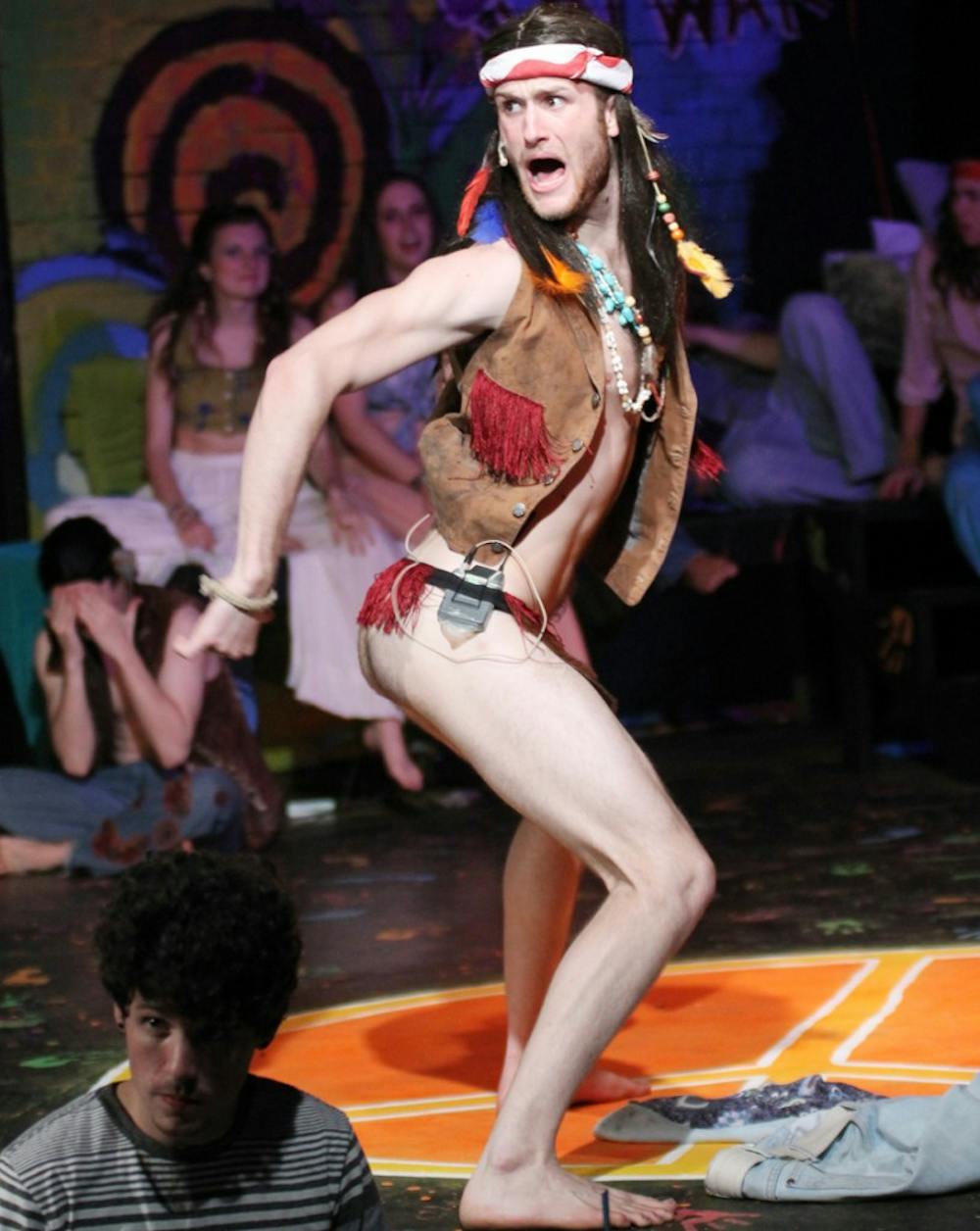1960s America. Love, sex, war and drugs created a revolutionary atmosphere — and tonight Pauper Players revives those feelings with its spring production of “Hair.”
“Hair” is about a group of hippies in New York City protesting the Vietnam War draft. It follows the story of main characters Claude, Berger and Sheila.
The play is directed by senior Paul Hovey, who said he envisioned a collaborative approach to the production, which is the first musical he has directed.
“‘Hair’ is about how you feel, rebelling against the man and finding your identity,” Hovey said.
“And I as a student director cannot do that without my actors finding that in themselves. I tried to guide the actors to find the answers that they needed instead of having them ask me.”
Hovey said no one in the cast of 23 actors had never performed “Hair” before, but each found his or her own place in the hippie tribe.
Emily Ruffin, who is co-producing the show with Brittney Holland, said Hovey’s rendition of “Hair” influenced her decision to act as a producer for the first time.
“I wanted to see another side of the production process aside from acting,” she said.
“(Hovey’s) very artistic vision was something I really wanted to be a part of.”



